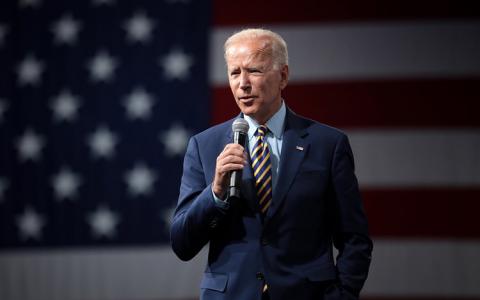
Unidentified sources told Bloomberg that the increases will reflect the promises Biden made during his 2020 campaign.
The planned increases reportedly include: raising the corporate tax from 21 percent to 28 percent; increasing the income tax rate on people making more than $400,000; expanding the estate tax; paring back tax preferences on pass-through businesses such as limited-liability companies; and setting up a higher capital gains tax rate for individuals making at least $1 million.
The Hill has reached out to the White House for comment.
As Bloomberg notes, an independent analysis of the Biden campaign's tax plan conducted by the Tax Policy Center found that it would raise around $2.1 trillion over 10 years.
Tax hikes included as part of infrastructure and job packages will likely include repealing part of former President Trump's 2017 tax law that largely benefitted corporations and wealthy individuals, the news outlet notes, citing sources close to the matter.
Biden had said during his campaign that he would repeal Trump's tax cuts on "day one" of his administration, though he has yet to do so.
Democratic lawmakers have expressed some hesitance to support a tax increase. Moderate Democratic Sen. Joe Manchin (W.Va.), who has quickly become a key vote in Congress, previously told The Hill that he thought repealing Trump's tax cuts would be "ridiculous."
He later walked back his remarks, saying, “Everything’s open for discussion.”
“His whole outlook has always been that Americans believe tax policy needs to be fair, and he has viewed all of his policy options through that lens,” former Biden economic aide Sarah Bianchi told Bloomberg. "That is why the focus is on addressing the unequal treatment between work and wealth.”
Any tax increases that are passed would likely take effect beginning in 2022, according to Bloomberg, which noted some lawmakers have called for the administration to hold off as pandemic-related unemployment remains high.
An anonymous Democratic House member told The Hill in February that they did not think the government should be raising taxes.
“People would accept the corporate tax raised a few points but beyond that you’re going to have problems, especially in the middle of an economic crisis,” the lawmaker said at the time.
Republicans are expected to fight any proposed tax increases, though Bloomberg notes that there are some measures that they may get behind such as shifting from a gasoline tax to a vehicle-miles-traveled fee.
GOP lawmakers may also support tax incentives that stop U.S. companies from moving jobs and profits out of the country, though they may not support penalties against such companies.
This article originally appeared on The Hill.



